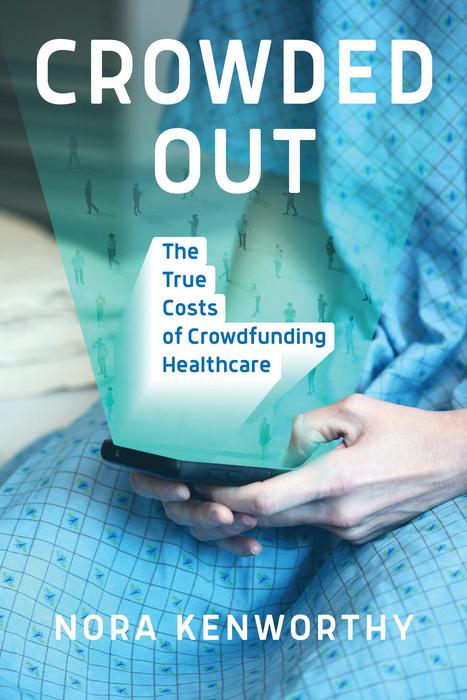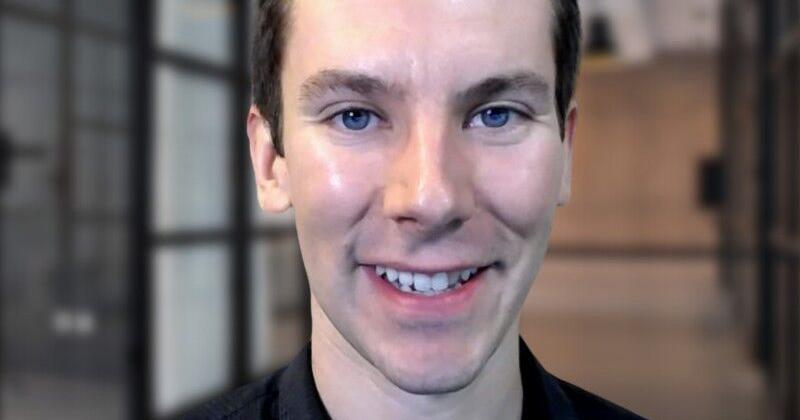image:
Cover art to The MIT Press’s “Crowded Out: The True Costs of Crowdfunding Healthcare” by Nora Kenworthy.
Credit: The MIT Press, 2024
FOR IMMEDIATE RELEASE
Cambridge, MA, May 2024—An eye-opening investigation into charitable crowdfunding for healthcare in the United States—and the consequences of allowing healthcare access to be decided by the digital crowd.
Over the past decade, charitable crowdfunding has exploded in popularity across the globe. Sites such as GoFundMe, which now boasts a “global community of over 100 million” users, have transformed the ways we seek and offer help. When faced with crises—especially medical ones—Americans are turning to online platforms that promise to connect them to the charity of the crowd. What does this new phenomenon reveal about the changing ways we seek and provide healthcare? In Crowded Out, Nora Kenworthy examines how charitable crowdfunding so quickly overtook public life, where it is taking us, and who gets left behind by this new platformed economy.
Although crowdfunding has become ubiquitous in our lives, it is often misunderstood: rather than a friendly free market “powered by the kindness” of strangers, crowdfunding is powerfully reinforcing inequalities and changing the way Americans think about and access healthcare. Drawing on extensive research and rich storytelling, Crowded Out demonstrates how crowdfunding for health is fueled by—and further reinforces—financial and moral “toxicities” in market-based healthcare systems. It offers a unique and distressing look beneath the surface of some of the most popular charitable platforms and helps to foster thoughtful discussions of how we can better respond to healthcare crises both small and large.
Nora Kenworthy is Associate Professor at the University of Washington Bothell. She is the author and editor of several books, and her writing has appeared in the American Journal of Public Health, Social Science and Medicine, PLOS One, Scientific American, the Washington Post, and the Los Angeles Times.
Editorial Reviews
“In this important book, Kenworthy explores why crowdfunding has become so prominent in social support systems and how it transforms practices of care, distributions of responsibility, and forms of precarity, exacerbating inequities as ordinary people encounter the financial toxicities of America´s healthcare systems.”
— Ruth J. Prince, Professor in Medical Anthropology, Institute of Health and Society, University of Oslo
“Nora Kenworthy’s excellent book exposes the failings of digital crowdfunding in America’s dysfunctional health system, showing it to be ineffective, inefficient, inequitable, and totally incompatible with the goal of achieving universal health coverage.”
—Robert Yates, Executive Director, Centre for Universal Health, Chatham House
“A compelling case for a world where health is no longer outsourced to ‘the kindness of strangers’ but is instead supported by our renewed commitment to justice, equity, and the common good.”
—Sandro Galea, Dean and Robert A. Knox Professor, Boston University School of Public Health
“With moral urgency and compelling clarity, Kenworthy offers a searing indictment of the symbiosis between Big Healthcare and Big Tech that allows them to grind out their billions off the backs millions of Americans, offering a clearer picture of just how many industries are in on the exploitation of the American patient.”
—Abdul El-Sayed, Towsley Policymaker in Residence, Ford School of Public Policy, University of Michigan; author of Medicare for All: A Citizen’s Guide
“A critically important book for anyone interested in what our healthcare system is really doing to patients and their families. Nora Kenworthy skillfully weaves together patient stories and penetrating analyses to explore the dark side of a crowdfunding phenomenon fed by unaffordable medical care that is deepening inequalities and perpetuating disturbing ideas about who deserves help in our society.”
—Noam N. Levey, Senior Correspondent, KFF Health News
“In this important book, Kenworthy explores why crowdfunding has become so prominent in social support systems and how it transforms practices of care, distributions of responsibility, and forms of precarity, exacerbating inequities as ordinary people encounter the financial toxicities of America’s healthcare systems.”
—Ruth J. Prince, Professor in Medical Anthropology, Institute of Health and Society, University of Oslo
Additional Press:
Disclaimer: AAAS and EurekAlert! are not responsible for the accuracy of news releases posted to EurekAlert! by contributing institutions or for the use of any information through the EurekAlert system.



